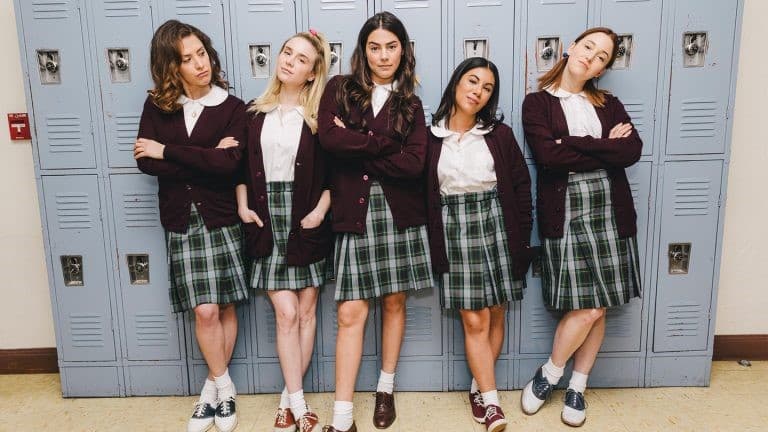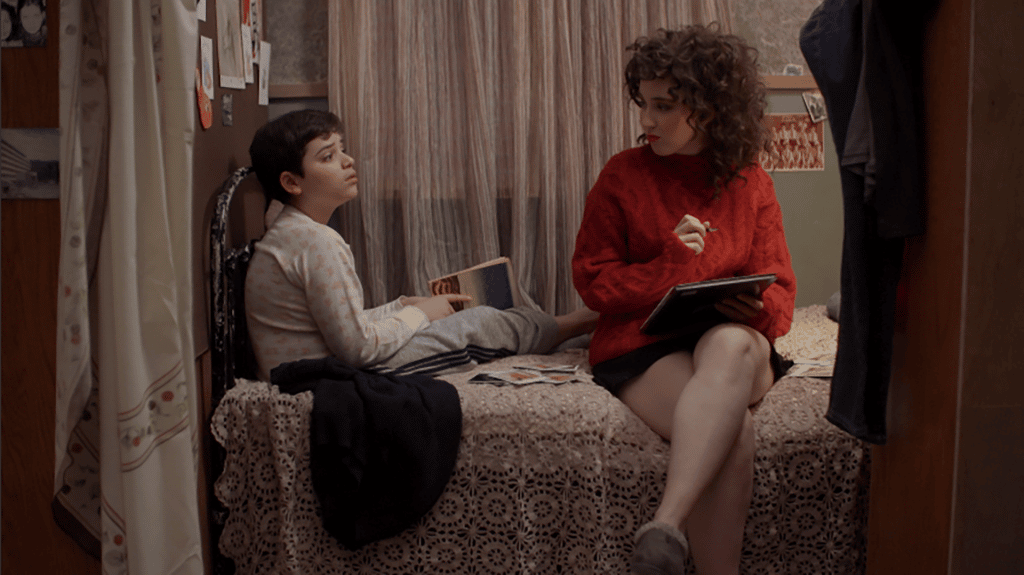Read also:
How to Watch FX Live Without CableHow To Watch AMC Without CableHow to Watch ABC Without CableHow to Watch Paramount Network Without Cable(This dispatch is part of our coverage of the 2021 SXSW Film Festival.)
As vaccinations soar, stimulus payments go through, and studios seem a bit more eager to get people back in theaters, it feels as though the days of COVID-era film consumption are drawing to a middle. To that end, I wonder if we’ll miss the unfettered access and pyjama-based marathons virtual film festivals have allowed us. One hopes they’ll stick around, given that virtual fests allow more and more people to access these small, independent films that could use all the eyes and exposure they can get. The 2020 SXSW Film Festival was the first to go virtual (and The Spool was one of the few outlets to continue to cover those entries!), so it’s fitting that we’ve come full circle in 2021 with a more full-fledged virtual fest.
Keep an eye out at The Spool for dispatches on the major categories and full reviews of the festival’s three headliners; in the meantime, let’s dig through Day 1’s offerings of the fest’s Narrative Feature Competition.

First up is Women Is Losers, a particularly well-intentioned but hopelessly preachy entry from first-time filmmaker Lissette Feliciano following the trials of Celina Guerrera (Lorenza Izzo), a young Catholic schoolgirl struggling against the constraints the patriarchal world traps her in. From the beginning, Feliciano arms us for the winking, unsubtle presentation that’s to follow; Izzo’s Celina struts towards the camera with a fierce, knowing wink, informing us that we’re going to delve deep into the sexism, racism, and patriarchal oppression that’s kept women like her down for years. From there, we’re thrown into 1960s San Francisco, and a laundry list of tragedies befall Celina: she’s knocked up by a selfish Vietnam vet named Mateo (Bryan Craig), her best friend in high school dies of a botched abortion, she’s forced to enter the workforce to help make ends meet while living with her abused mother (Alejandra Miranda) and abusive father (Steven Bauer), she experiences sexism at the behest of her handsome, yet predatory boss (future Marvel superhero Simu Liu), and so on.
Admittedly, there’s some scrappy charm to Women Is Losers‘ sense of righteous fury and homespun origins — in her initial monologue to the camera, as she’s dragging a cheating Mateo out of his mistress’ house, she apologizes for the low production values and asserts that the film is “a story about making do with what you’ve got.” And one can see that in Feliciano’s confident direction and Izzo’s powerhouse lead performance; the latter does a lot to help sell the film’s frustrating mawkishness.
But it’s one thing to swagger through your story of female empowerment and make bold choices; it’s another for those choices to work, and Women Is Losers loses its audience with the sledgehammer-level applications of its politics. Celina will pull a Jim-from-The-Office “can you believe this?” mug whenever someone says something sexist or condescending to her; Liu’s boss pulls us aside on a San Francisco bus to thoroughly explain the history of the Chinese Exclusion Act; Feliciano whip-pans past a litany of excuses men make for not using birth control. The lack of subtlety often extends into melodrama: Celina’s friend doesn’t just die from an illegal abortion, she lives just long enough to pull Celina into the room and melodramatically whimper, “Don’t ever tell them I was sorry.” Scenes will start and end with unlikely characters just walking up to Celina on the street in ways that don’t seem intentionally stylistic.
Women Is Losers wears its feminism on its sleeve, but (apart from its gestures at the specific ways sexism hits women of color the hardest) doesn’t show keyed-in audiences anything they don’t already know. A lot of the big stylistic swings miss, and miss hard, and Feliciano loves to overexplain what she’s going for in just about every scene. That said, Women Is Losers is far from a total failure, given the confidence and commitment of Izzo’s lead performance, and the welcome moments when Feliciano’s broader experiments land (e.g. a particularly dreamlike montage of Celina floating down a hallway while her friends and family look on in judgment, her belly growing ever larger to usher us through her pregnancy). If she recalibrates her expectations a bit and doesn’t talk down to her audience, Feliciano’s second feature is likely to show a ton of promise.

A sillier, but no less stylistic, tale of overcoming prejudice and repression comes in Wes Hurley‘s autobiographical queer coming-of-age tale Potato Dreams of America, which began life as a 2017 SXSW short and later VR experience and now comes to us at feature length. At first glance, it feels like Jojo Rabbit by way of Gregg Araki, a fractured fairy tale that begins in 1985 Vladivostok and follows a young Russian boy named Potato (Hersh Powers), whose own budding understanding of his sexuality coincides with the fall of the Iron Curtain. Suddenly, capitalism warps Russia into a cavalcade of consumption and Christian missionaries, and Potato doesn’t know where to turn (except for a particularly swishy imaginary Jesus played by Mean Girls‘ Jonathan Bennett). Eventually, his mother Lena (Sara Barbieri) lands a placement as a mail-order bride, and off they go to America, the land of milk and honey.
The two worlds could not be more different, as evidenced by Potato Dreams‘ decision to change filmmaking approaches (and even casts) between the Russian first half and American second half. While in Russia, everyone speaks with a Transatlantic American deadpan (of which Orange is the New Black‘s Lea DeLaria makes the best use as Potato’s stern Russian grandmother) while the stagecraft is more fantastical. But in America, Hurley gives us a more grounded tale of adolescent discomfort and queer struggle, with older actors for Potato (Tyler Bocock) and Lena (Marya Kaminski), both of whom deploy Russian accents. It’s a smart move for selling the alienation the pair receive in America, as their friends, neighbors and classmates have trouble understanding them — and, as Potato explores his gayness more openly, becomes fetishized for it in a darkly funny montage of men wanting him to speak Russian to them.
Apart from that though, it’s hard not to feel that Potato Dreams loses a bit of its steam as it gets more earnest; in its latter half, I found myself missing the cutesy camp of Russia as Hurley dove into more personal, sincere material in America. There are highlights, to be sure, from Kaminski’s sensitivity and quiet persistence as “American Lena” to a turn from The Wonder Years‘ Dan Lauria that takes some surprisingly heartfelt roundabouts. But there comes a point where Potato Dreams loses its sense of style and becomes Just Another Coming Out Film, which is a bit disappointing. Still, there’s enough to enjoy here, and the personal nature of the project really shines through. We needed more Gay Jesus though.

From there, we hit on another immigrant story, this one the clear frontrunner of the Narrative Competition category thus far: Martin Edralin‘s quiet, delicate Islands, about a middle-aged Filipino immigrant named Joshua (Rogelio Balagtas) who’s spent all of his nearly fifty years of life with his parents, who are increasingly infirm. He’s deathly shy and clearly codependent on them: They cook his meals and keep up the house, he’s too bashful to dance when he drives them to their weekly line-dancing classes. His closest relationship is with Jesus Christ, for whom he consistently prays for his parents’ good health, and for a companion of his own to be with. But when tragedy strikes and his mother passes, he finds himself struggling to care for his increasingly-senile father, while few of his family members pitch in.
For all of its patient, intimate runtime, Islands is a film first and foremost about loneliness — the realization that you’ve given up your life to care for someone, and the abyss that awaits you when you realize that’s about to end. Its deeply mired in the traditions of Filipino culture: fealty to family, food as love language, their deep ties to religion, and more. Edralin doesn’t give his characters much to say (especially the soft-spoken Joshua), but the delibrate framing of his lonely lead next to empty chairs, or with a portrait of Christ looming over him, speaks volumes of the soul-crushing emptiness he feels. Joshua is a man forced to consider finally starting his life five decades in, while the remnants of the family he spent decades patiently waiting on crumble right in front of him. It’s a film of devastating import, whose simple rhythms and unspoken yearning more than make up for a delibrately slow pace. Easily the best of the fest so far for me.

But what’s a 2021 film festival without a relationship dramedy set during COVID? We all knew it was going to happen a few weeks into the pandemic when mask-wearing and frayed nerves sent even the most well-adjusted couples into emotional freefall during the quarantine. And here we are with perhaps the most straightforward, though not un-charming, iteration of the COVID breakup film: Henry Loevner and Steven Kanter‘s The End of Us. A BuzzFeed Studios production (Loevner and Kanter are producers of the site’s video content and stars Ben Coleman and Ali Vingiano are frequent stars of said content), The End of Us tracks the waning days of a fractured relationship between out-of-work LA actor Nick (Coleman) and neurotic girlfriend Leah (Vingiano) as the pandemic hits.
Having broken up but unable to leave the house due to COVID, the two exes are forced to still live together, Nick having been downgraded from ‘boyfriend’ to ‘roommate’. This leads to every close-to-home spat anyone partnered has experienced this past year: reminders to put our masks on, fights about how long we’ve been washing our hands, the million little intrusions of space and noise that come with two people spending literally 24/7 in the same home for months at a time. The two consider getting back together, they grow apart again, Nick grows jealous when Leah begins an erstwhile romance with a coworker (Derrick DeBlasis’ Tim, the quintessential Criterion Boyfriend), et cetera, ad nauseam.
To its credit, The End of Us captures those realistic anxieties well enough, and Coleman and Vingiano have pretty decent deadpan chemistry as their isolation flits from frustration to fondness and back again. But it all feels a bit thin, and it’s hard to a) watch a COVID-set relationship dramedy in the first place, since we’re still in the pandemic and reticent to relitigate it so soon, and b) feel all that bad for the young, relatively privileged LA urbanites at its core. To be sure, COVID-19 has traumatized all of us in various ways, but it’s easy to roll your eyes at their concerns when so many people have it much worse than to huff and puff at living with your ex in a charmingly-decorated home in Southern California. Still, while we have it, I have to admit it’s rendered with no small amount of unassuming charm, even as the idleness of COVID life rolls into some repetitiveness in the narrative as well. Many of us just might want to wait until we’ve got enough space from the pandemic to even approach these works. For now, it’s way too soon.